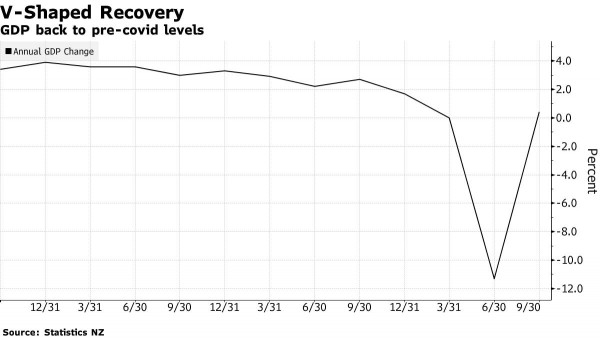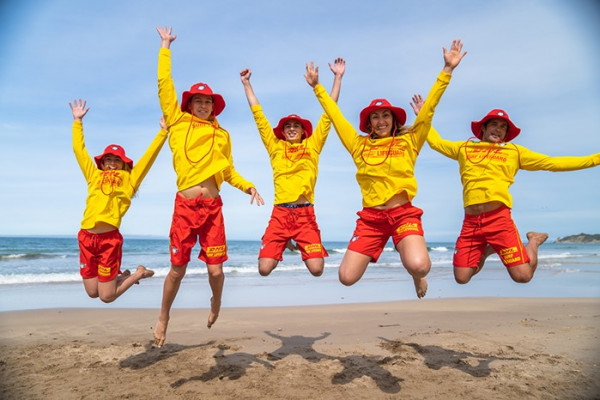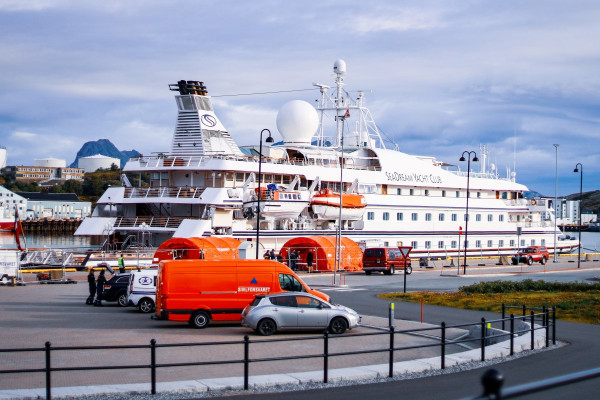Medium term impacts
Page updated: 5 January 2021
When it comes to assessing the medium-term impact of COVID-19 on the SAR sector, the picture is still very uncertain and highly changeable.
While NZ's economy has recovered much better than expected, globally COVID-19 continues to run rampant, with the recent emergence of a so-called "UK strain" that spreads more easily, not making things any better.
This said, there is hope on the horizon with the commencement of COVID-19 vaccination programmes around the world. New Zealand's own is due to start in the second half of 2021.
Medium-term demand impacts
The NZSAR Secretariat predicted that a 'new normal' would emerge in the medium-term. But would this 'normal' mean more or less in terms of demand for search and rescue?
The NZSAR Secretariat projected “normal or above new levels” of outdoor recreation in the medium term “as people settle into routines and activities established in the first few months post-lockdown.”
In particular, there was a suggestion that people would take their recreation into wider areas, which could put them into higher-risk situations.
There was also a sense that people were likely to take advantage of the absence of tourists, and engage in more domestic tourism.
At the time of writing, Australia was not in COVID resurgence. Consequently, the NZSAR Secretariat also said that:
“Australian tourist numbers may increase, with a corresponding higher participation rate in outdoor activities than other international tourists. These factors are more likely to see people in situations of risk.
Of course, since this was written, further outbreaks of COVID-19 appear to making a Safe Travel Zone between Australia and New Zealand less likely in the medium term.
Medium term volunteer impacts
The NZSAR Secretariat predicted that both lockdown and higher Alert Levels that followed, would make it harder to both recruit and retain volunteers. So, what might happen when it comes to SAR volunteers in the medium term?
In the medium term, the NZSAR Secretariat projects that volunteer numbers are likely to be reduced, though more stable in terms of supply and availability. They comment that:
“Units or areas suffering loss of personnel or specialist capabilities will need to go through a rebuilding phase.”
The Secretariat also note that there is potential to attract new volunteers as people focus on ‘what is really important’, leading to an increase in support for local entities.
Unfortunately, it is predicted that many funding and supply gaps will remain unfilled across the SAR sector and there is also “potential for overall agency capability to be reduced.” However, the Secretariat notes that “opportunity exists to make use of people who have more available time”, which appears to refer to the potential for people made unemployed due to COVID-19 spending more time volunteering. They also suggest that the SAR sector can:
“…attract new volunteers in this period, capitalising on increased social awareness and new relationships. Systems to recruit and induct new members will be required, particularly from young volunteers.”
Medium term funding impacts
When the NZSAR Secretariat initially projected the likely impacts of COVID-19 on the sector, it (like most others) predicted having to deal with a medium term economic recession. However, a surprise was in store.
In April 2020, it looks almost guaranteed that COVID-19 would bring a long and deep recession to New Zealand's economy just as it has for most countries around the world. Indeed, on 28 April 2020, the Bank of New Zealand stated in its 'Markets Outlook the following:
“For us, though, the most important aspect of the recovery is how long will it take to get back to where we started and, alas, the answer remains a very long time. We continue to think it will be the tail end of 2023 before we get there which, of course, means activity levels, even then, will still be well below where trend growth would have taken us.”
In line with this expectation of a deep recession triggered by COVID-19, the SAR Secretariat at the same time said the following:
"How might the post-Covid structure of the New Zealand economy differ from before the crisis? The coming recession will be different from the 2008-09 global financial crisis, which was initially driven by financial institutional collapse. The new recession will impact real economic activity and international "people flows" – both migration and tourism. There is no foreseeable prospect of people flows returning to anything like past levels. Among New Zealand's biggest exports are dairy, wine, foreign tourism and students. The first two should recover well but the last two will be severely adversely affected for years, not months (Gemmell 2020).
The Secretariat predicted that the recession would have a reasonably direct and rapid impact on SAR sector funding, saying “recession will reduce peoples’ and business’ capability to provide funding.” They also predicted that there would continue to be increased competition for declining funding sources from across the social sector, making it even hard to secure enough money to continue SAR operations in the medium term. The SAR Secretariat went as far as to break-down the range of possible COVID-19 impacts on SAR sector funding in the table below.
Table of Projected COVID-19 impacts on SAR funding, April 2020

However, in perhaps one of the few pieces of really good news, the New Zealand economy bucked the international trend. It has effectively revived to pre-coronavirus levels, achieving what commentators are referring to as a “V-shaped recovery” (see graph [1] below). Following a significant contraction of GDP in the June quarter, NZ’s GDP surged by 14 per cent in the September quarter 2020.

Linked to these better-than-expected results, as at January 2020, NZ businesses and householder are currently anticipating better days ahead amid positive signs in the economy. Furthermore, the property market continues to be very strong.
In short, the assumed recession has not actually materialised to date. Of course, we are still in the very early part of what might be considered the ‘medium term’ picture when it comes to COVID-19, but an effective COVID-19 and economic strategy appear to be enabling New Zealand to avoid much of the economic pain experienced by other nations. In this context, there is some cause for optimism that the funding impacts of COVID-19 in the medium term may not be as bad as expected.
As if to illustrate this, in May 2020, Finance Minister Grant Robertson announced in the 2020 Budget that for the first time there will be a Central Government contribution to the costs of surf life saving operations – at a level of $9.4 million per year in perpetuity.

New Zealand Surf Lifesavers...jumping for joy?
Surf Lifesaving NZ commented on this funding injection, saying:
"This is a game changer for the 74 surf life saving clubs around the country and should underpin their sustainability for the foreseeable future. This could not have come at a better time, with our traditional sources of short term, high risk revenues which were already under pressure prior to Covid-19, taking a big hit with the impact of the lockdown."[2]
Funding for Surf Lifesaving activities is still going to be a ‘joint effort’ between Central Government, Local Government and the wider community in its many forms (the central government contribution above accounts for around 15% of the annual $12M cost).
---
[1] Withers, Tracy. (17 Dec 2020). ‘New Zealand Economy Surges Out of Recession in V-Shaped Recovery’ https://www.bloomberg.com/news/articles/2020-12-16/new-zealand-economy-surges-out-of-recession-amid-spending-spree (Accessed 5 Jan 2021).
[2] Surf LifeSaving NZ (14 May 2020). ‘Historic Day For SLSNZ With New Government Funding Announced’ https://www.surflifesaving.org.nz/news/2020/may/central-government-funding-for-surf-life-saving, Accessed 5 Jan 2021.
Wider impacts (medium term)
The NZSAR Secretariat originally predicted resumption of many activities in the medium term that could contribute to higher demand for search and rescue activities. However, COVID-19 appears to still have surprises up its sleeve, frustrating the resumption of 'life as normal' in many areas across the world.
NZSAR Secretariat foresaw the potential return of cruise ships, more international flights and resumption of Antarctic recreation. Unfortunately, in November 2020, one of the first cruise ships to ply through Caribbean waters since the pandemic began ended its trip early after at least five passengers tested positive for COVID-19.[1]

Seadream 1 - A Cruise Ship forced back to port due to COVID-19
Then, in late November 2020, it was reported that 36 new COVID-19 cases were reported in Antarctica. These incidents inevitably delay the resumption of ‘normal’ international traffic. The only upside to this is that the delay also reduces demand for SAR to some extent for now.
---
[1] Coto, D (13Nov 2020). ‘COVID-19 cases hit 1st Caribbean cruise since pandemic’, https://apnews.com/article/international-news-pandemics-coronavirus-pandemic-caribbean-puerto-rico-776d52b6002ede55f968e0a8879946b2 (Accessed 5 Jan 2021)
